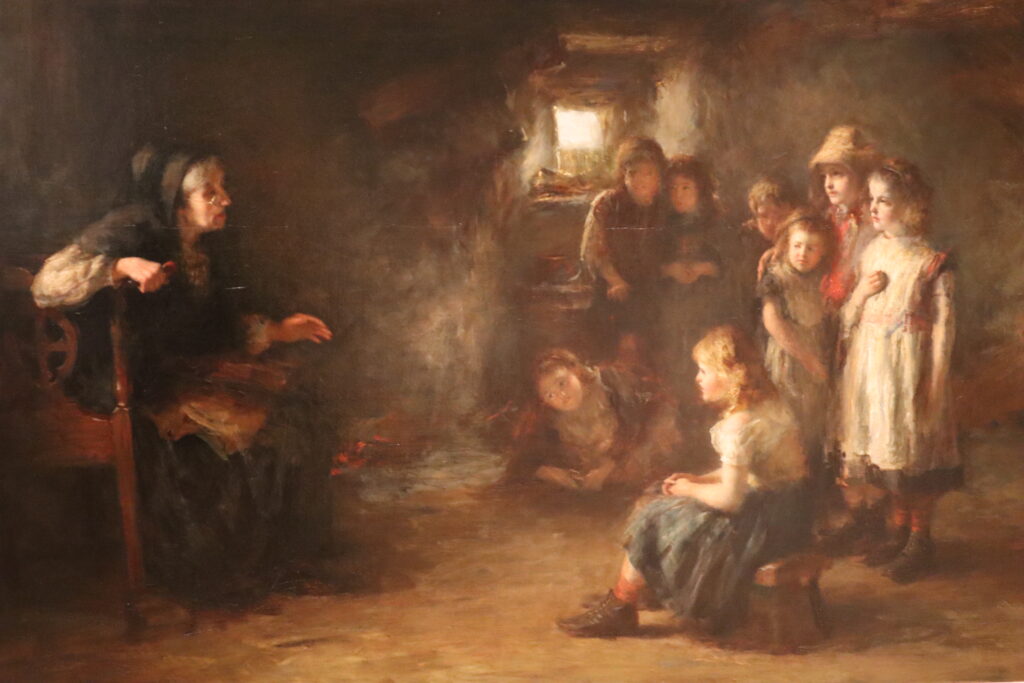
Quite deliberately and quite effectively, the recent biography (The Bard) of Robert Burns by Robert Crawford stresses the important role of his mother in introducing him at an early age to the legacy of Scottish word and song. As a child Burns was possessed of a highly retentive memory as evidenced by his ability to accurately recite in later life the words of songs learned from his mother.
His mother, Agnes Brown, of limited formal education, had compensated for this by embracing the prevailing oral traditions of her native Ayrshire. The painting ‘The Legend’ by George Paul Chambers (cira 1867) conveys this role of the spoken word in passing on stories to emerging generations. (This is actually the illustration of a character from Sir Walter Scott’s novel ‘The Pirate’).
Perhaps in a curious twist, the lack of formal education and book reading had encouraged the existence of such oral traditions. In the case of Burns, however, it was more than learning words. It was an introduction to an emotional highway that would resonate to the highs and lows of life itself.